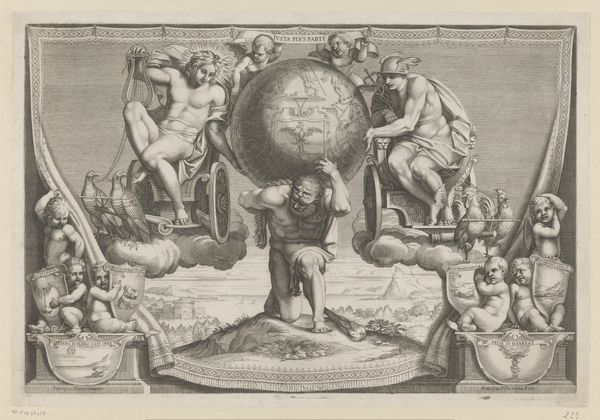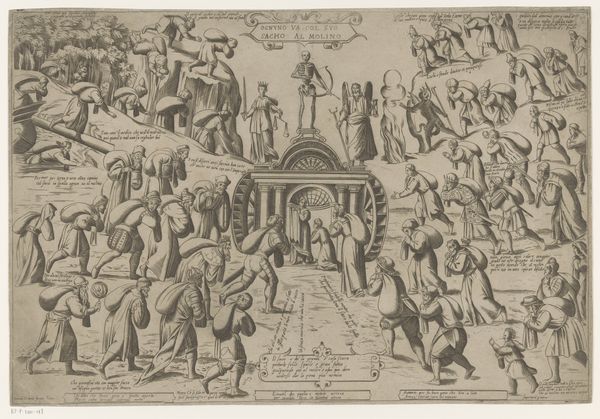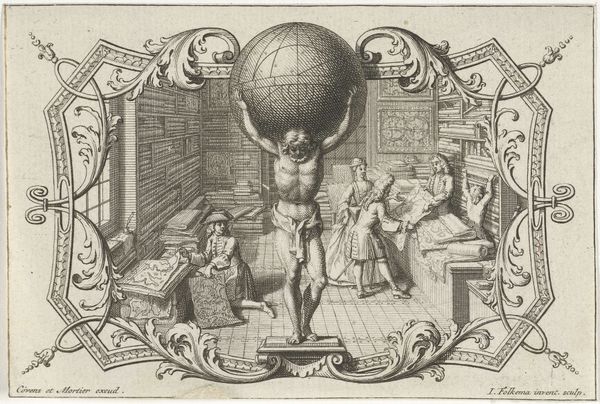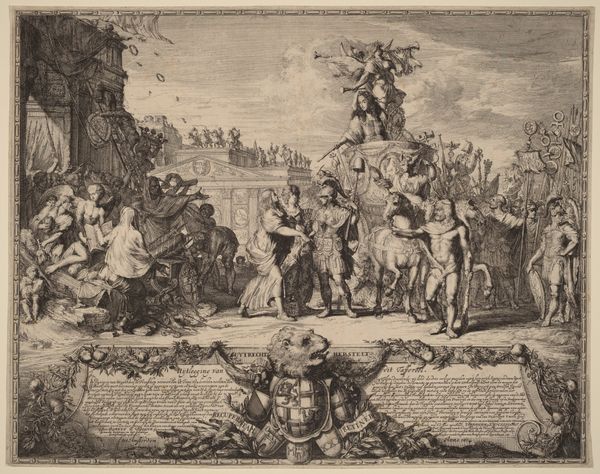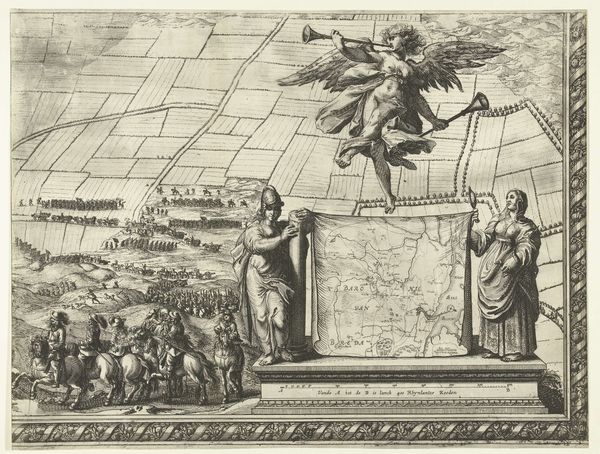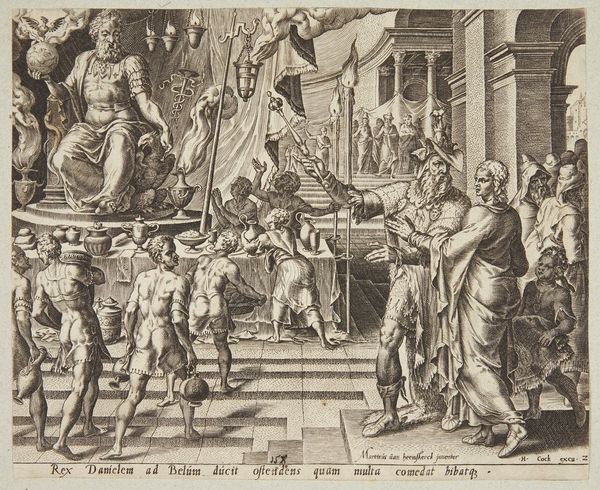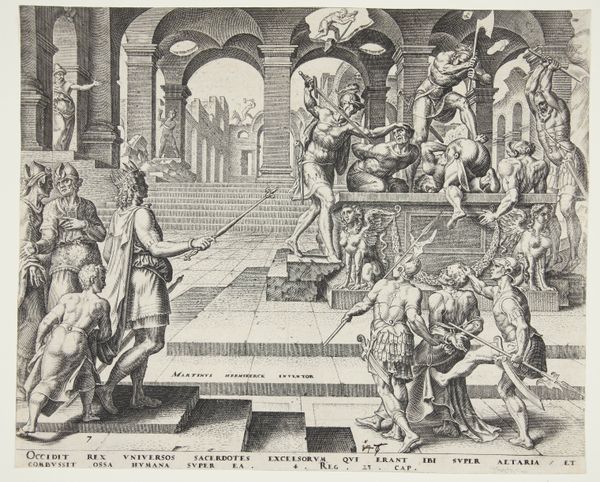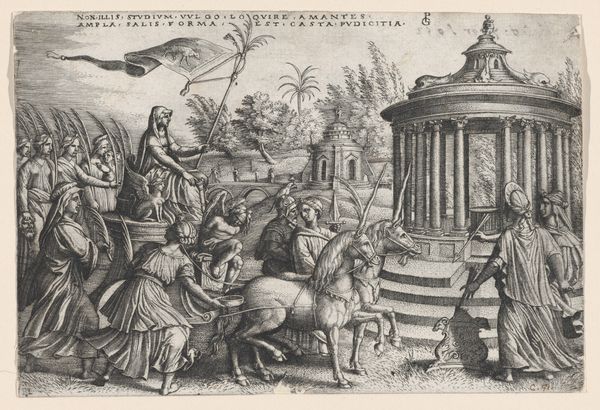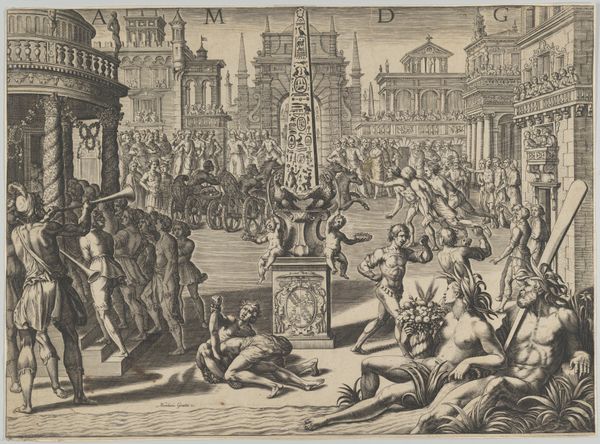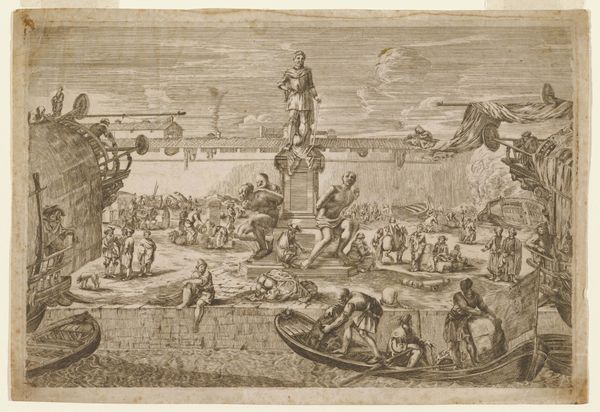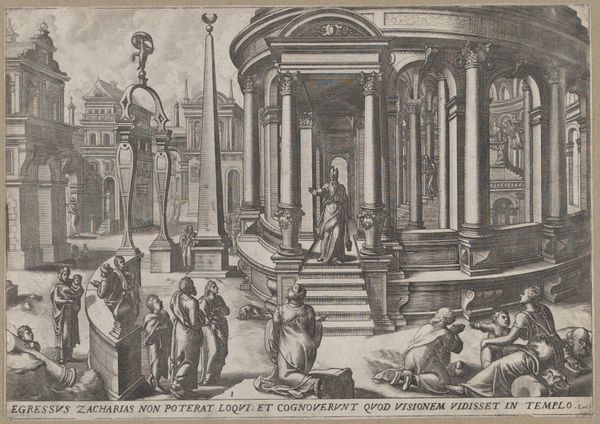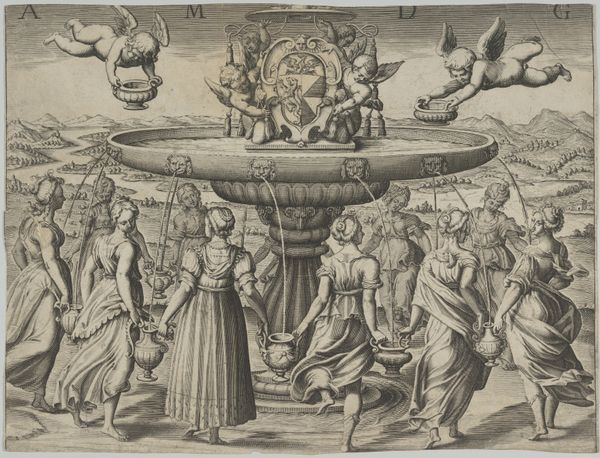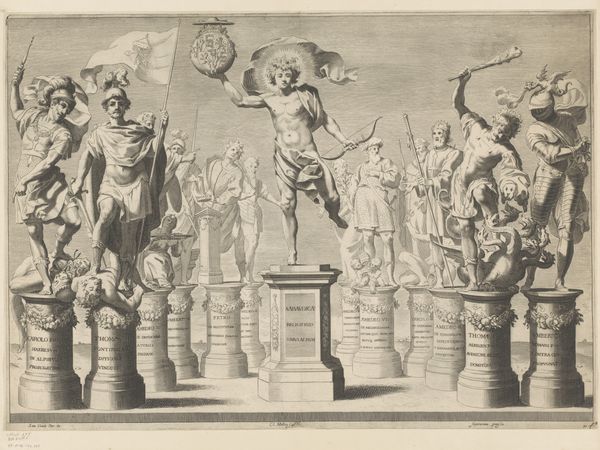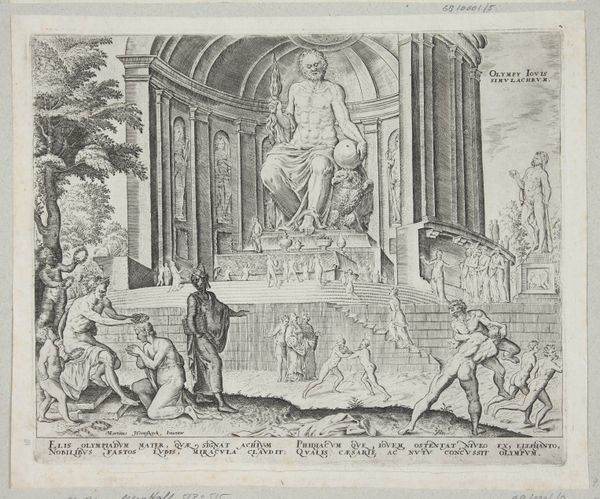
Allegory of the Twelve Labors of Hercules Statues in a Circular Garden 1566 - 1638
0:00
0:00
drawing, print, sculpture, engraving
#
drawing
#
garden
#
toned paper
#
allegory
# print
#
landscape
#
classical-realism
#
mannerism
#
figuration
#
sculpture
#
history-painting
#
engraving
Dimensions: Sheet: 11 7/16 × 15 7/8 in. (29.1 × 40.3 cm)
Copyright: Public Domain
Matthaeus Greuter created this engraving called "Allegory of the Twelve Labors of Hercules Statues in a Circular Garden," sometime before his death in 1638. The mythical figure of Hercules, known for his strength and heroism, is presented as a series of statues arranged in a stylized garden setting. Produced in Italy, this image reflects the cultural fascination with classical antiquity during the Renaissance and Baroque periods. The twelve labors, each representing a significant challenge, were potent symbols of virtue, perseverance, and the triumph of good over evil. Such allegories were often deployed to comment on contemporary social issues. Hercules embodied the ideal ruler, overcoming obstacles for the good of his people. To fully appreciate this image, we can explore how the concept of the hero was understood in 17th century Italy, perhaps by looking at period literature, political writings, and the patronage of the arts. The interpretation of art is always contingent on its social and institutional context.
Comments
No comments
Be the first to comment and join the conversation on the ultimate creative platform.
